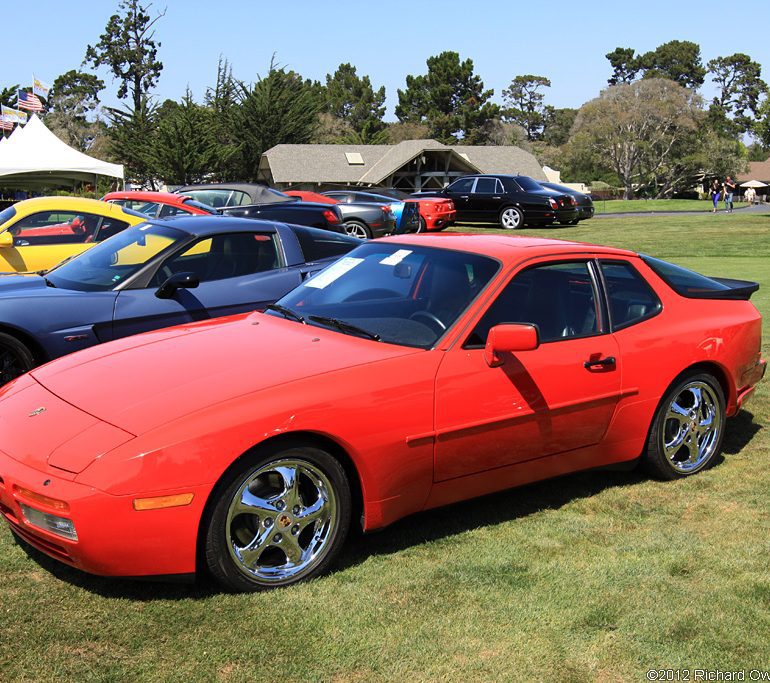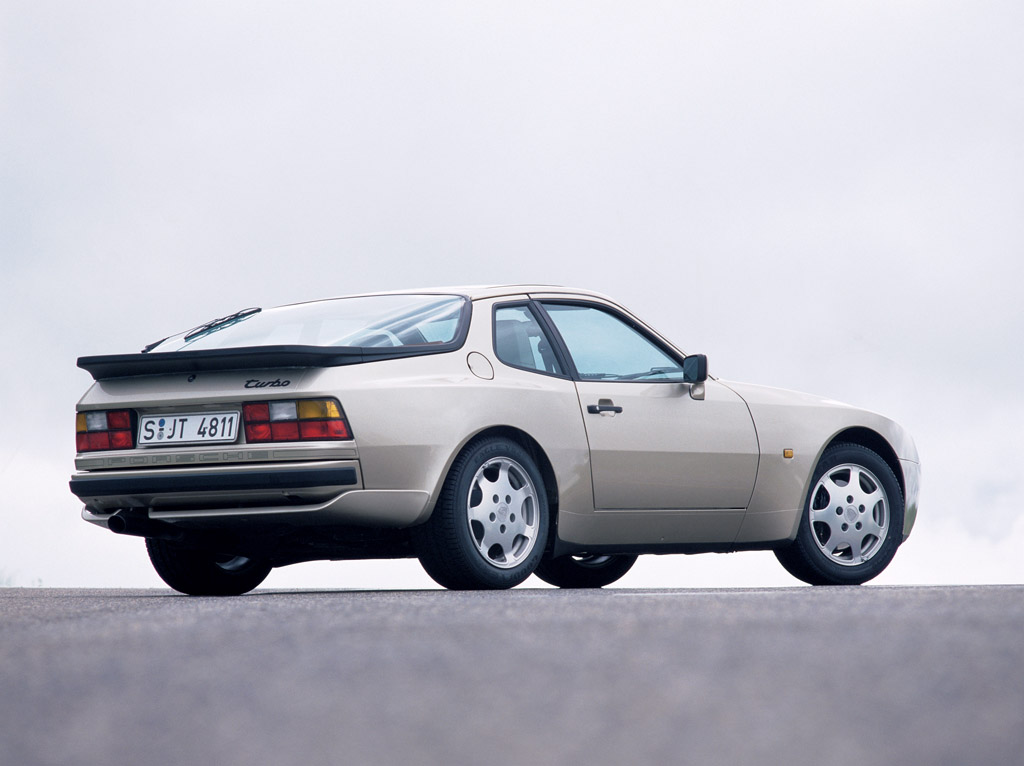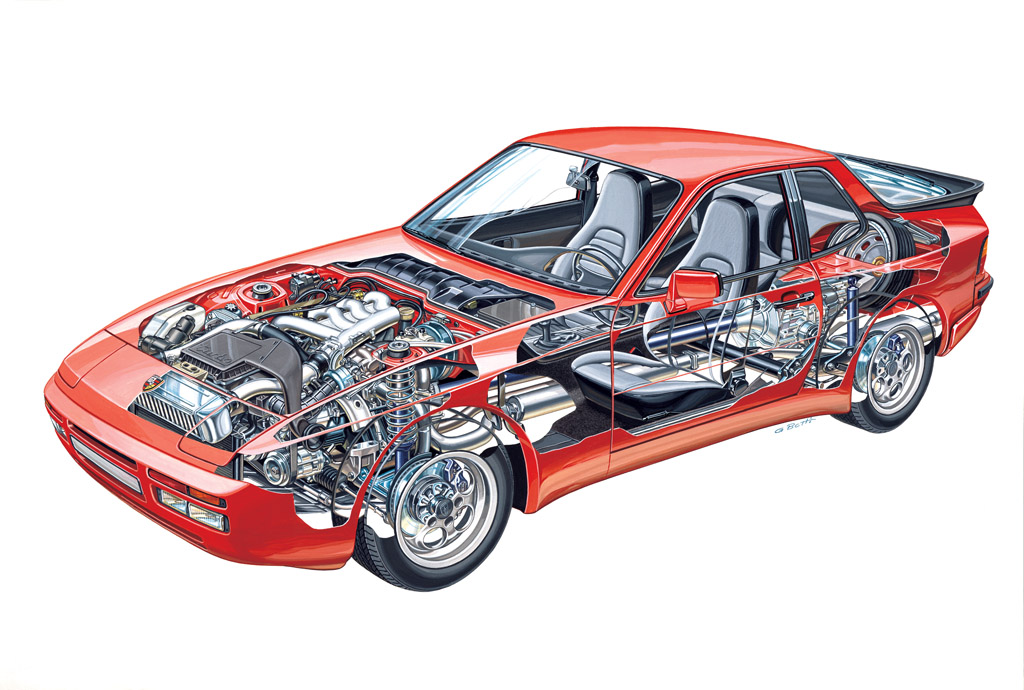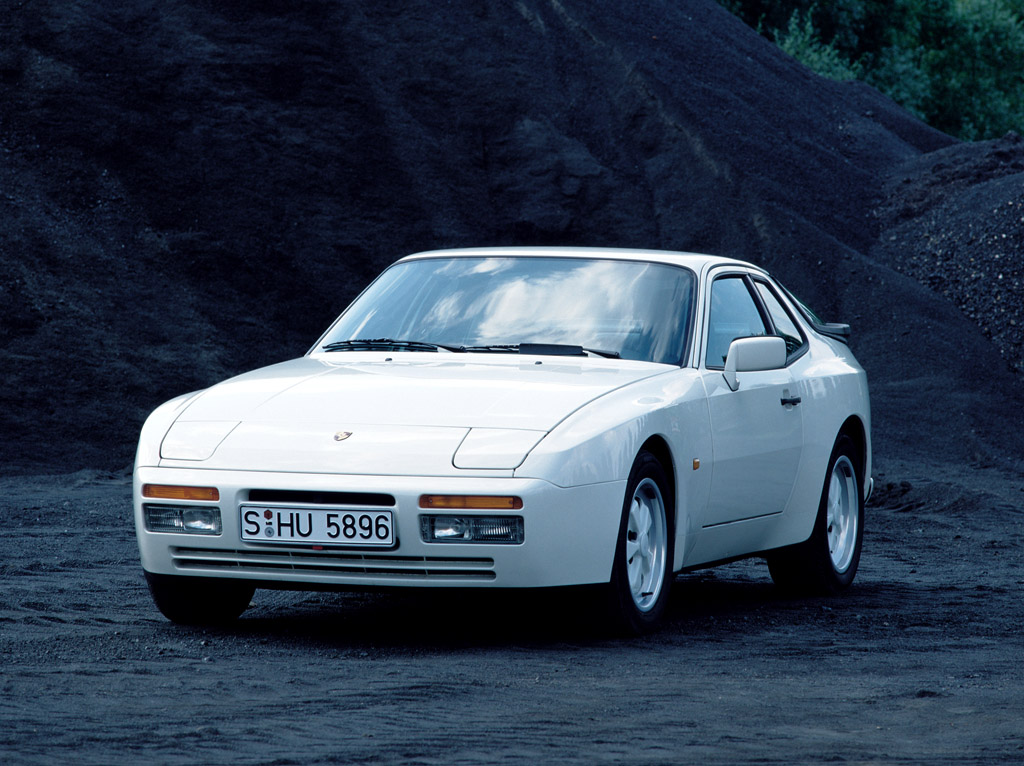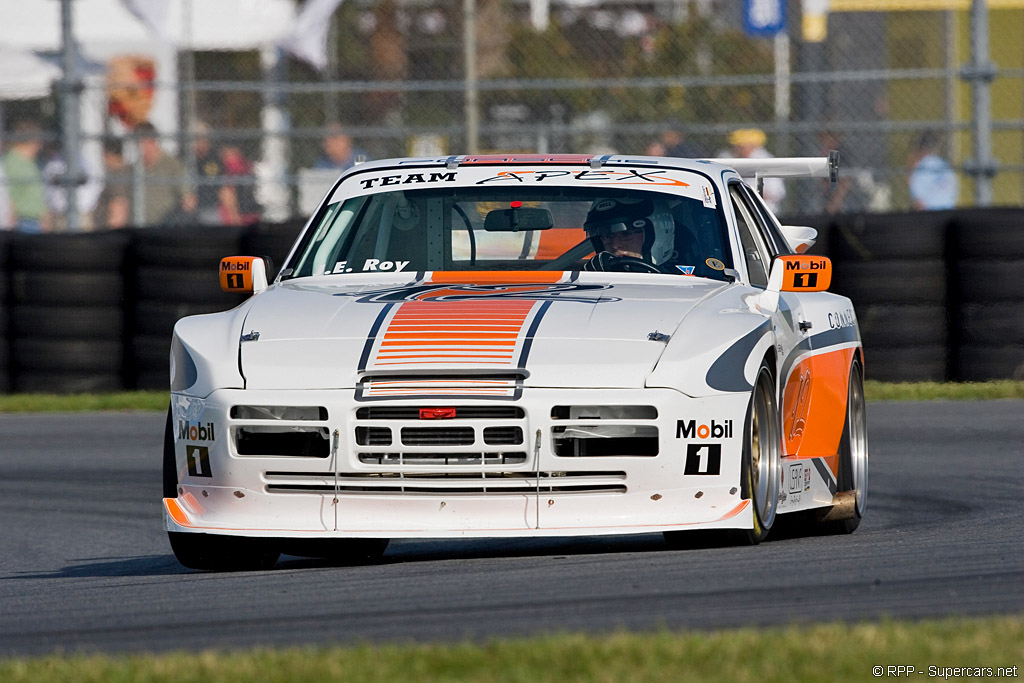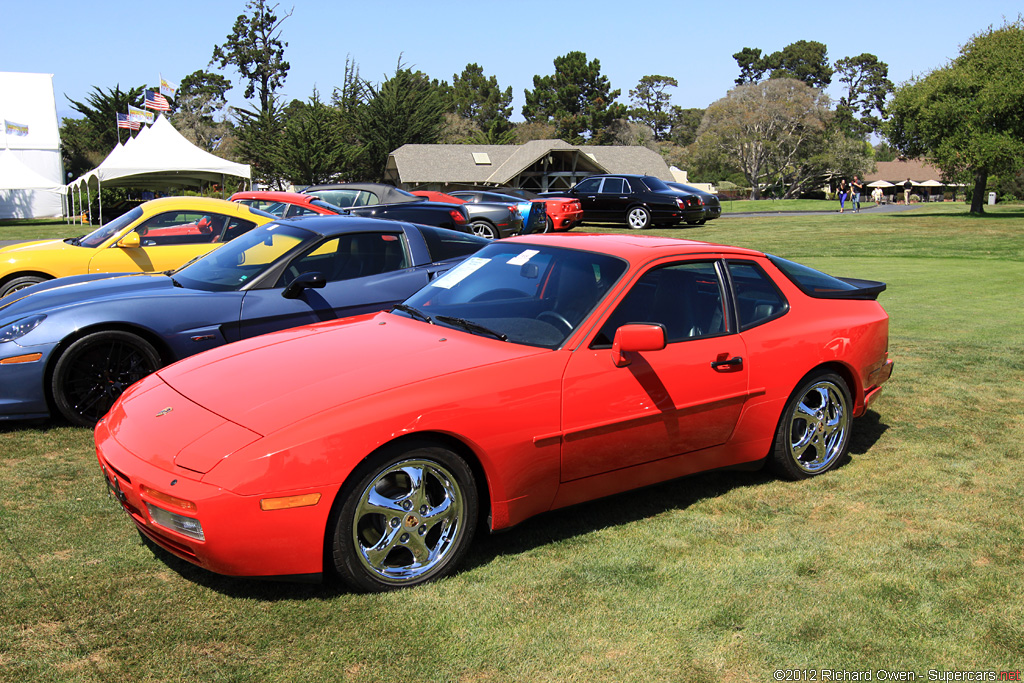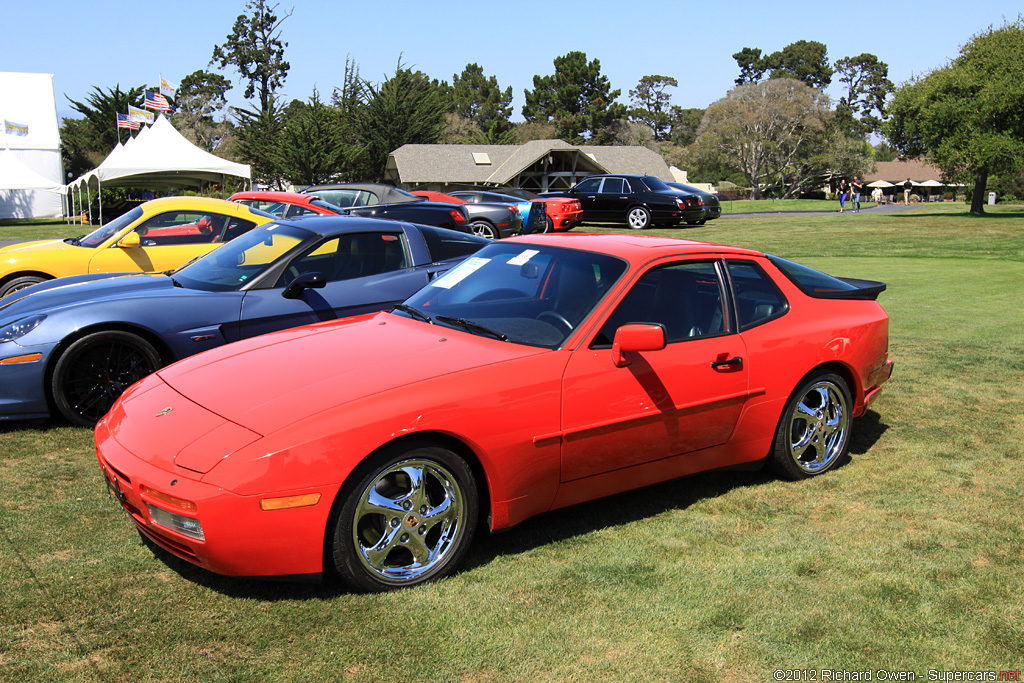1985 Porsche 944 Turbo
It was in the summer of 1981 at the Le Mans 24-hour race in France that the first 2.5 liter four-cylinder from the new generation lined up at the start of the world’s toughest long-distance event. The car which Walter R hrl and J?rgen Barth, up against vastly more powerful competition, drove to chalk up 7th place in the overall standings was known under its cover name as the Porsche 924 GTP. In reality it was the first trial racing version of what was to be the 944 Turbo series. It proved to be one of the most reliable cars in the line up and consequently took the prize for having the shortest time standing in the pits. This meant that it was able to lap some of the more powerful race cars that spent a long time in the pits undergoing repairs.
Three years later a 944 Turbo pilot-production car lined up at the start of the 24-hour race in Nelson Lodges in Ohio/USA. Cars entered in this race had to comply with the stringent American highway traffic registration regulations, which also required exhaust-gas catalysts to be fitted. These catalytic converters were part of the 944 Turbo’s development right from the start. It was also the first model that achieved identical outputs with and without a fitted catalytic converter.
In the transaxle-model series the Porsche 944 Turbo is situated between the 944 with naturally aspirated engine and the Porsche 928 S. In terms of price it compared with the Porsche 911 Carrera, although it was not a direct competitor to the classic rear-engined Porsche. It appealed to drivers who not only valued the economy and driving culture of the Porsche 944, but who also wanted more in terms of greater driving performance and convenience.
The fast four-cylinder engine with water-cooled turbo technology not only received lots of praise, it also chalked up several motorsport successes. Experts celebrated its debut as the fastest car with catalytic converter in the world, the cleanest in the world and others simply summed it up so: Porsche technology of the finest
The 944 Turbo differed from the basic model visually through its aerodynamically optimised front end, black door-sill trims at the sides and the colour-coded rear-end diffuser. — Porsche
In Detail
| type | Series Production Car |
| built at | Germany |
| engine | M44/51 Inline 4 |
| position | Front, Longitudinal |
| aspiration | Turbocharged |
| valvetrain | SOHC 2 Valves / Cyl |
| displacement | 2479 cc / 151.3 in³ |
| bore | 100.1 mm / 3.94 in |
| stroke | 79.0 mm / 3.11 in |
| compression | 8.0:1 |
| power | 164.1 kw / 220 bhp @ 6000 rpm |
| specific output | 88.75 bhp per litre |
| bhp/weight | 155.7 bhp per tonne |
| torque | 242 nm / 178.5 ft lbs @ 3500 rpm |
| driven wheels | Front Engine / RWD |
| front brakes | Vented Discs /w Vacuum Assist |
| rear brakes | Vented Discs /w Vacuum Assist |
| curb weight | 1413 kg / 3115 lbs |
| wheelbase | 2400 mm / 94.5 in |
| front track | 1478 mm / 58.2 in |
| rear track | 1450 mm / 57.1 in |
| length | 4230 mm / 166.5 in |
| width | 1735 mm / 68.3 in |
| height | 1275 mm / 50.2 in |
| transmission | 5-Speed Manual |
| top speed | ~245 kph / 152.2 mph |
| 0 – 60 mph | ~5.5 seconds |
| 0 – 1/4 mile | ~13.5 seconds |
Auction Sales History
Auction Source: 2012 Daytime


